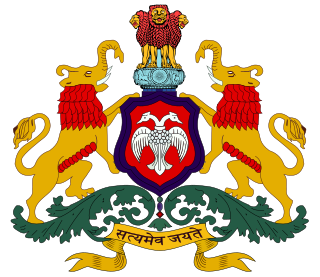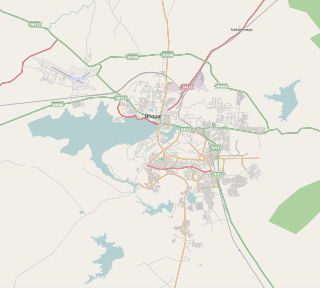Local government is a generic term for the lowest tiers of public administration within a particular sovereign state. This particular usage of the word government refers specifically to a level of administration that is both geographically-localised and has limited powers. While in some countries, "government" is normally reserved purely for a national administration (government) (which may be known as a, the term local government is always used specifically in contrast to national government – as well as, in many cases, the activities of sub-national, first-level administrative divisions. Local governments generally act only within powers specifically delegated to them by law and/or directives of a higher level of government. In federal states, local government generally comprises a third or fourth tier of government, whereas in unitary states, local government usually occupies the second or third tier of government.
In many countries, a mayor is the highest-ranking official in a municipal government such as that of a city or a town.

Kanpur, historically called Cawnpore, is a metropolis in the state of Uttar Pradesh in India. The greater metropolis is divided into two districts: the urban district of Kanpur Nagar and the rural district of Kanpur Dehat.

The administrative divisions of New York are the various units of government that provide local services in the State of New York. The state is divided into boroughs, counties, cities, townships, called "towns", and villages. They are municipal corporations, chartered (created) by the New York State Legislature, under the New York State Constitution the only body that can create governmental units in the state. All of them have their own governments, sometimes with no paid employees, that provide local services. Centers of population that are not incorporated and have no government or local services are designated hamlets. Whether a municipality is defined as a borough, city, town, or village is determined not by population or land area, but rather on the form of government selected by the residents and approved by the New York Legislature. Each type of local government is granted specific home rule powers by the New York State Constitution. There are still occasional changes as a village becomes a city, or a village dissolves, each of which requires legislative action. New York also has various corporate entities that provide local services and have their own administrative structures (governments), such as school and fire districts. These are not found in all counties.

The Bruhat Bengaluru Mahanagara Palike (BBMP) is the administrative body responsible for civic amenities and some infrastructural assets of the Greater Bangalore metropolitan area. It is the fourth largest Municipal Corporation in India being responsible for a population of 6.8 million in an area of 741 km2. Its boundaries have expanded more than 10 times over the last six decades.

The State Government of Karnataka is a democratically elected body with the governor as the constitutional head. The governor who is appointed for five years appoints the chief minister and on the advice of the chief minister appoints his council of ministers. Even though the governor remains the ceremonial head of the state, the day-to-day running of the government is taken care of by the chief minister and his council of ministers in whom a great amount of legislative powers are vested.
The government of Texas operates under the Constitution of Texas and consists of a unitary democratic state government operating under a presidential system that uses the Dillon Rule, as well as governments at the county and municipal levels.

The Pune Municipal Corporation is the civic body that governs Pune, India. It is in charge of the civic needs and infrastructure of the metropolis, which is spread over an area of 331.26 sq. km. and has 3.4 million residents. Established on 15 February 1950, the executive power of the PMC is vested in the Municipal Commissioner, an Indian Administrative Service (IAS) officer appointed by the Government of Maharashtra. The position is held by Shekhar Gaikwad, IAS since April 2018.The general body of the PMC consists of 162 directly elected councilors, popularly known as "corporators", headed by a mayor. Murlidhar Mohol (BJP) was elected as the mayor and Saraswati Shendge (BJP) as the deputy mayor by the newly elected general body in March 2017. The land for Pune Municipal Corporation was donated by Late Shrimant Bhausaheb Shirole (Patil) who was second Mayor of Pune city and later became an MLC.

The Greater Hyderabad Municipal Corporation (GHMC) is the civic body that oversees Hyderabad, the capital and largest city of the Indian state of Telangana. It is the local government for the cities of Hyderabad and Secunderabad. It is one of the largest municipal corporations in India with a population of 6.9 million and an area of 625 km².
Rajkot Municipal Corporation is responsible for the civic infrastructure and administration of the city of Rajkot in Gujarat state of India. The organization is known, in short, as RMC. It was established in 1973. This civic administrative body administers an area of 104.86 km2. RMC is headed by Mayor of Rajkot.
The governing structure of RMC consists of political and administrative wings. The political wing is an elected body of councilors headed by a mayor. The commissioner from the IAS cadre heads the administrative wing and is responsible for strategic and operational planning and management of the corporation. The commissioner takes decisions on behalf of the board or the standing committee formed from the elected councilors to perform the duties of the corporation.
The government of Arizona is the governmental structure of the state of Arizona as established by the Arizona Constitution. The executive is composed of the Governor, several other statewide elected officials, and the Governor's cabinet. The Arizona Legislature consists of the House of Representatives and Senate. The judiciary is composed of the Arizona Supreme Court and lower courts. There is also local government, consisting of counties, municipalities and special districts.
A municipal corporation is a local government in India that administers urban areas with a population of more than one million. The growing population and urbanization in various cities of India were in need of a local governing body that can work for providing necessary community services like health care, educational institution, housing, transport etc. by collecting property tax and fixed grant from the State Government.

Pimpri Chinchwad Municipal Corporation, Pune is the civic body that governs the neighbourhood of Pimpri Chinchwad, north western city limits of Pune, India. It was established on 11 October 1982 to govern the newly industrialized towns of Chinchwad, Akurdi, Pimpri & Bhosari. It governs an area of 181 km2 with a population of 1.72 million. The executive power of the PCMC is vested in the Municipal Commissioner, an Indian Administrative Service (IAS) officer appointed by the Government of Maharashtra. The position is held by Shravan Hardikar since April 2017. The general body of the PCMC consists of 128 directly elected councilors, popularly known as "corporators", headed by a mayor. Rahul Jadhav (BJP) was elected as the mayor and Sachin Chinchwade (BJP) as the deputy mayor in August 2018. The PCMC headquarters is situated on the Old Pune Mumbai Highway alongside the freeway in the city of Pune.
The government of Washington State is the governmental structure of the State of Washington as established by the Constitution of the State of Washington. The executive is composed of the Governor, several other statewide elected officials and the Governor's cabinet. The Washington State Legislature consists of the House of Representatives and State Senate. The judiciary is composed of the Washington Supreme Court and lower courts. There is also local government, consisting of counties, municipalities and special districts.

Bhopal Municipal Corporation (BMC) is the Municipal Corporation for the capital city of Madhya Pradesh, it is responsible for the civic infrastructure and administration of the city of Bhopal. The organization is known, in short, as BMC. This civic administrative body administers an area of 463 km2. BMC is headed by Mr. V.S.Choudhary Kolsani (IAS) the Commissioner and Mr. Alok Sharma the Mayor. In August 2014, the corporation became one of India’s first municipal corporations to automate citizen services by shaking hands with German software giant SAP SE for the purpose, the commissioner Naik inked the deal at New Delhi.

The Patna Municipal Corporation or Patna Nagar Nigam, abbreviated PMC, is the civic body that governs Patna, the capital of Bihar in India. Patna Municipal Corporation consists of democratically elected members, is headed by a mayor, and administers the city's infrastructure, public services, and supplies. Members from the state's leading various political parties hold elected offices in the corporation.

There are 8 divisions and 64 districts in Bangladesh, each district further subdivided into upazila. The area within each subdistrict, except for those in metropolitan areas, is divided into several unions, with each union consisting of multiple villages. Direct elections are held for each union, electing a chairperson and a number of members. In 1997, a parliamentary act was passed to reserve three seats in every union for female candidates. Following elections in the 2014–16 period, 25.2% of councillors were women, up from 23.4% in the 2011–13 period.
The Medininagar Municipal Corporation is the municipal organisation of Medininagar, India. Medininagar Municipal Corporation or Medininagar Nagar Nigam, abbreviated MMC, is the chief nodal agency for the administration of Medininagar.
In many countries, a municipal commissioner is an official in a municipal government such as that of a city or a town.









